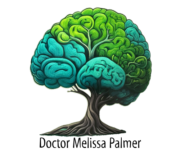Lifestyle Factors That Impact Memory
Lifestyle Factors That Impact Memory
• The crucial role of sleep in memory consolidation
Sleep is important to be able to learn and for your brain to consolidate memories. “What do you mean?” I hear you ask. Firstly, you working memory can be impaired if you are not getting enough sleep. Check out my earlier blog about working memory How to Improve Memory: A Comprehensive Guide for All Ages Part 1 (Autumn 2024) – Doctor Melissa Palmer.
Secondly, sleep helps to consolidate memories. This means that the neural pathways (connections between different nerve cells) within your brain are strengthened whilst asleep. This can lead to new information being linked more strongly to information already within your long-term memory. This will enable new information to be more embedded in your long-term memory.
• Nutrition and brain-boosting foods
Eating an healthy diet is good for your physical and mental health. There are countless studies that show that high sugar diets and high processed food diets have a detrimental affect on physcial and mental health. There is specific evidence that when people eat foods high in antioxidants such as blueberries these support the function of the working memory that is crucial to help make new long term memories (see link above to find out more about working memory).
The following nutrients have been found to be important for a healthy brain; B-vitamins, Folic Acid, omega-3 fatty acids, Vitamin E (an antioxidant), and flavanols. These can be found in a wide range of foods. Oily fish and eggs are good for vital fatty acids. Kale, spinach, cabbage, broccoli and other green leafy vegetables have got a wide range of nutrients that support a healthy brain.
• Physical exercise and its effects on cognitive function
I have read many studies about physical exercise and learning. In lessons it is important for the students to have regular activity breaks. Every 20-30 minutes in a lesson have a 5 minute activity break. The research demonstrated that students had better learning outcomes with regular physical activity. This in turn improves their learning and hence, cognitive function. See also this earlier blog How to Improve Memory: A Comprehensive Guide for All Ages Part 2 (Autumn 2024) – Doctor Melissa Palmer
Working professionals or older students can corporate regular physcial activity into their work or study schedule. This can be a short burst of activity in the home, or office. Or you may want to schedule in a longer activity session where you go for a walk or a run. There is evidence that being active for short periods of time during your work day, support the cognitive function of your brain. You will be more productive. A short ten minute activity session is all it takes.
I recently started scheduling 10 minute yoga breaks into my day. On the days when I am disciplined and am able to stick to the schedule I am more productive and feel better in myself. I have a clearer head and getting better prioritise. This has helped me get traction with challenging projects. Give it a go – you may be surprised about the instant impact (I know I was).
You might set a trend in your work place, school or college. Be brave and see if you can start an activity revolution. After all not only will you be more productive and you will be healthier. Furthermore, evidence shows you will be protecting your brain from cognitive decline.
• Stress management techniques for improved memory
Stress is bad for brain function. If we are anxious, stressed, angry or upset this means that our sympathetic nervous system has played a big role in our lives recently. It might be that you are having a difficult hour, or morning, or day, or week …and so on. The longer you live with stress the bigger the impact on our brains and hence, our ability to make new memories effectively. Stress has been linked to causing inflammation, faster ageing of the brain, and degenerative brain diseases such as certain forms of dementia.
We cannot avoid stress in our lives. Life happens to us. We have gentle ups and downs. Then sometimes we are totall blind sided by really difficult news. What can we do about it? Here are my top tips.
- Get the key three right – exercise, sleep and healthy eating these will reduce the symptoms of stress.
- Ask for help. This might be from a healthcare professionally or family & friends. This is something I have always found really difficult. As I have grown older I have asked for help more and more. It turns out people really want to help – if you give them the opportunity.
- Reduce your cognitive demand, remove any demands that are not essential and centralise your work see here for more help How to Improve Memory: A Comprehensive Guide for All Ages Part 2 (Autumn 2024) – Doctor Melissa Palmer
- Breathe deeply whilst standing on the floor (preferably with bare feet). Breathe in deeply and breathe out for longer than you breathed in. This will activate your parasympathetic nervous system. Your feet will ground you. You will feel calmer and your head will be clearer.
Always remember that with all big uncomfortable feelings – this will pass with time.
